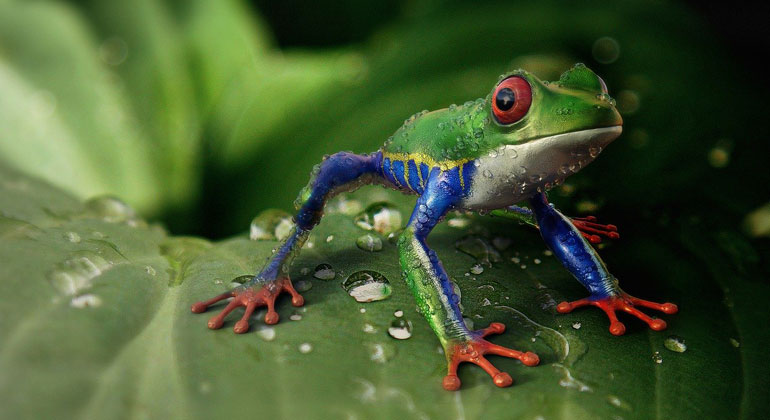Animals are insufficiently prepared for extreme temperatures
What are the long-term consequences of temperature when birds and mammals develop? This question is of great importance for both humans and animals in view of climate change.
A current study of the Research Institute of Wildlife Ecology (FIWI) of the Vetmeduni Vienna has now examined if climatic challenges in early life could have advantages later on.
Although birds and mammals are quite different, both are known to change how they keep warm or cool when temperature in the egg or womb fluctuates. Sylvain Giroud from the Research Institute of Wildlife Ecology at the Department of Interdisciplinary Life Sciences of the Vetmeduni Vienna and Andreas Nord from Lund University in Sweden analyzed existing studies to examined whether these effects are positive or negative, and if they remain when animals are adult.
The ability to adapt to temperature changes can improve, but also get worse
When birds and mammals are born, they cannot regulate body temperature at all. This means that they cool or heat depending on how cold or hot the nest is. It is not really known how such reactions influence temperature tolerance later. According to Giroud it is not possible to come to definite conclusions based on existing research. “In some cases temperature fluctuations before and after birth lead to organisms that are better able to adapt to environmental temperature as adults. But in other cases the environmental temperature early in life appears to make animals worse at dealing with temperature later in life.”
Animals are insufficiently prepared to withstand extreme weather events
Some studies indicate that animals developing in low temperatures make better use of strategies to save energy when they are adults. By analogy, growing up in high temperatures seems to make animals better at keeping cool. However, the researchers fear that increasingly frequent extreme weather events could compromise this mechanism, because in the course of evolution it has not been necessary for animals to adapt to frequent strong changes in weather conditions. That is, if you grow up during a heat wave or a cold snap, you may be great at dealing with those conditions, but not very good at tackling those that normally prevail where you live.
Many open questions, new studies urgently needed
According to the paper, it is the timing, length and severity of temperature change during development that determines if an animal will be better or worse at dealing with such temperatures as adults. However, exact data, hardly exist, especially for mammals and the time just after birth. Giroud therefore emphasizes that new studies are urgently needed. “The key to predicting how individuals and populations will react to the challenges of climate change and the associated increases of extreme weather events is a thorough understanding of how temperature tolerance originates, and how conditions that animals experience when they grow up determines how they deal with temperature over their life.”








